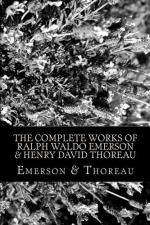|
This section contains 9,136 words (approx. 31 pages at 300 words per page) |

|
SOURCE: “Emerson and the Woman Question: The Evolution of His Thought,” in New England Quarterly, Vol. 71, No. 4, December, 1998, pp. 570-92.
In the following essay, Gougeon summarizes Emerson's views on the women's liberation movement.
In a newspaper article celebrating the one-hundredth anniversary of Emerson's birth, Thomas Wentworth Higginson complained that those who knew Mr. Emerson in the light of a reformer, as he surely did, would find precious little information “given in that direction by his biographers.”1 Noting the generally conservative character of the two most influential and popular biographies of Emerson, those by Oliver Wendell Holmes and James Elliot Cabot,2 Higginson was particularly distressed over their “constitutional reticence” in discussing the philosopher's role in both the antislavery and women's movements. “It was a well-known fact,” Higginson observed, “that Mr. Emerson spoke several times at woman suffrage conventions, and this cordially and sympathetically. Yet,” he says, “this is not...
|
This section contains 9,136 words (approx. 31 pages at 300 words per page) |

|


